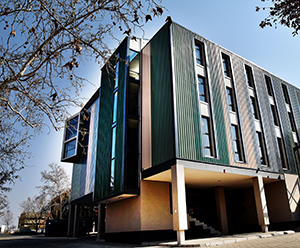Latest News Archive
Please select Category, Year, and then Month to display items
23 April 2020
|
Story Cornelius Hagenmeier
|
Photo Pixabay

The iKudu project, which is an European Union-funded Capacity Building in Higher Education (CBHE) project, has recently launched its blog, which aims to amplify the diverse voices of all iKudu stakeholders. In this space, members of the iKudu team will regularly share their views on the project and related international education topics.
The iKudu project focuses on developing a contextualised South African concept of Internationalisation of the Curriculum (IoC), which integrates Cooperative Online International Learning (COIL) virtual exchanges. The project was launched by the UFS in 2019, together with nine European and South African partner universities. It is funded by the European Union’s Erasmus+ programme with EUR999 881 (approximately R20 million) and is implemented over a three-year period.
The iKudu project is based on the fundamental belief that it is necessary to rethink internationalisation in an uncertain world. First, it is crucial to recognise and transform the power dynamics underlying international academic collaboration. Second, it is essential to develop pedagogies that allow every student to participate in international education, integrating technology where appropriate.
However, while all stakeholders agree on the fundamental tenets of the project and its principal goals, all iKudu stakeholders contribute different perspectives. In the blog, the iKudu stakeholders will provide a space for intellectual discourse on the project and related international education topics, which will allow constructive and critical engagement.
The link to the blog can be found at: https://www.ufs.ac.za/ikudu/ikudu-blogs/Transforming-Curricula-through-Internationalisation-and-Virtual-Exchanges
Expansion to Physics building officially opened on Bloemfontein Campus
2016-05-06

The newly-opened addition to the Physics Building on the Bloemfontein Campus.
Photo: Charl Devenish
|
An extension to the Department of Physics at the University of the Free State (UFS) was officially opened on the Bloemfontein Campus on 20 April 2016.
“This started off about five years ago when we were talking about not having enough room for large classes. Prof Matie Hoffman suggested that we build a large lecture room on our parking space,” said Prof Hendrik Swart, Professor in the Department of Physics as he addressed guests at the official opening ceremony.
“A year later, we received a Sarchi Research Chair [South African Research Chairs Initiative] on Advanced and Luminescent Materials. We needed more office and laboratory space. The two ideas were combined and presented to the university’s senior management,” he added.
When the university was founded in 1904, Prof James Lyle was appointed to head up the Physics and Chemistry departments. Five years later, a single room was allocated for the Physics laboratory in the main building upon its completion. In 1947, the old Physics building was designed and constructed. Fast forward 69 years, the department has reached another milestone. Facilities accommodated by the expansion include a new telescope for astrophysics experiments, a basement for storing old equipment, as well as a sliding trap door which allows heavy goods to be elevated into the building from the ground floor. The telescope is one of the many unique features of the building given its capacity to expose graduate students to the basic techniques of radio astronomy, especially in light of the fact that the SKA (Square Kilometre Array) project which is in progress.
“Our department is extremely strong at this stage, and a bright future lies ahead,” said Prof Koos Terblans, the Head of Department. The opening also served to celebrate the 103 publications achieved by the department last year.
Dr Lis Lange, Vice-Rector: Academic is proud of the heights reached by the department to date. “The Department of Physics is undoubtedly one of the jewels in the crown of our university, and we are very proud of its developments. Universities are built on legacies, and they are also about change, which is what this department has been demonstrating.”
The expansions to the building with its top-class facilities, was constructed at a cost of R25 million – an infrastructure grant courtesy of the Department of Higher Education and Training.